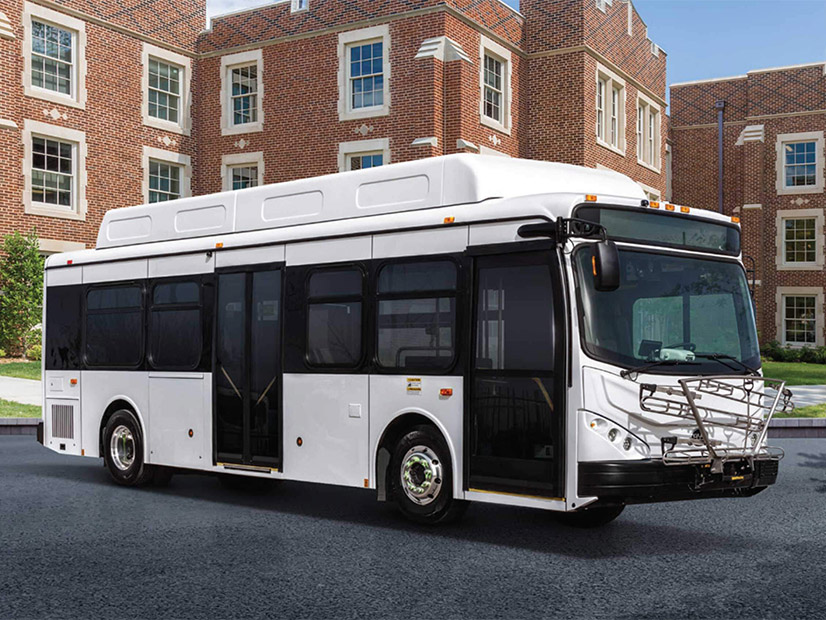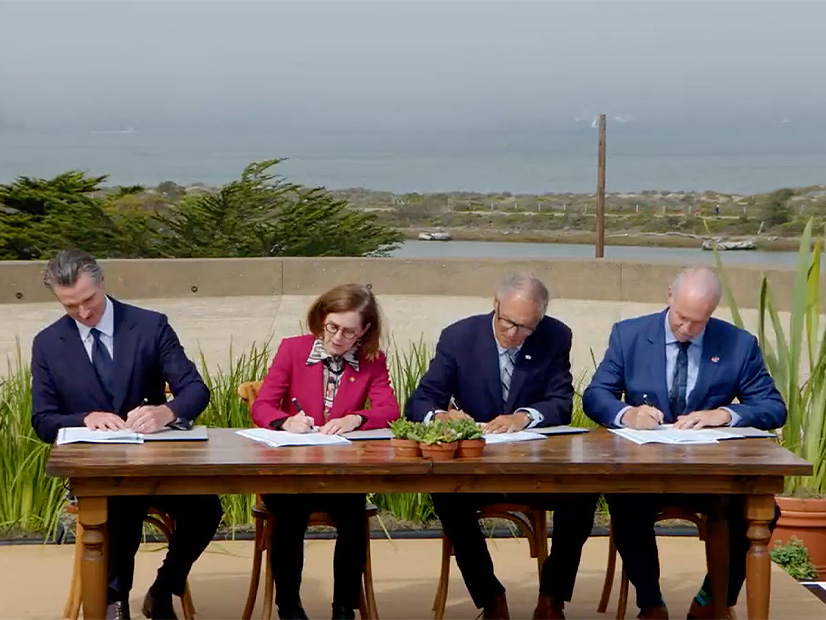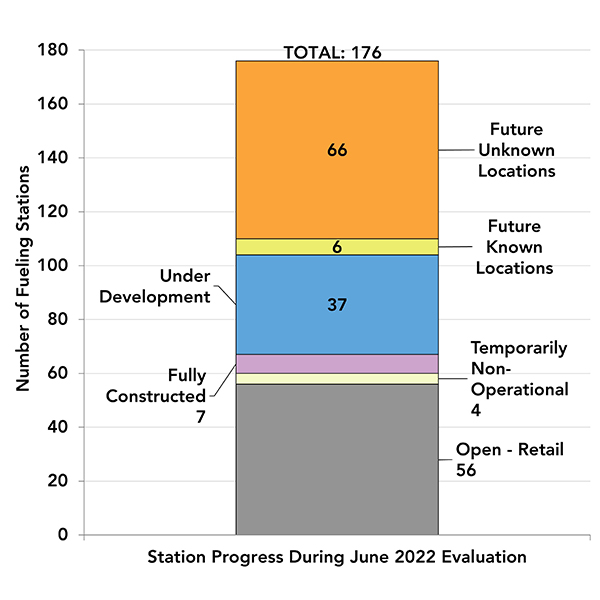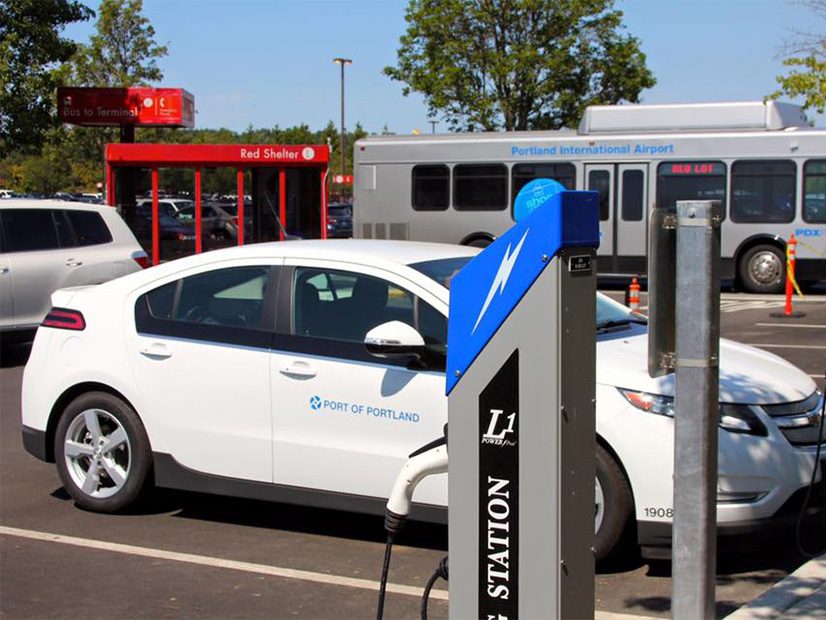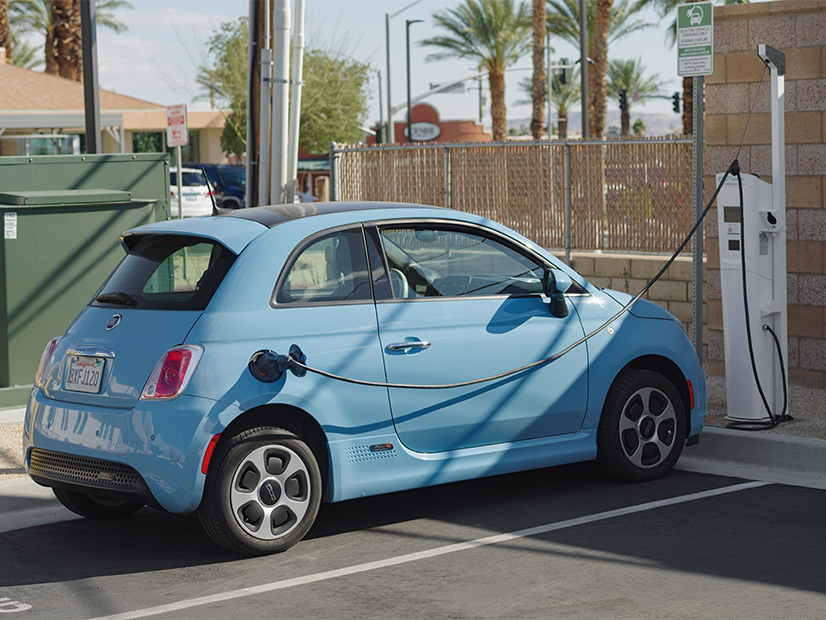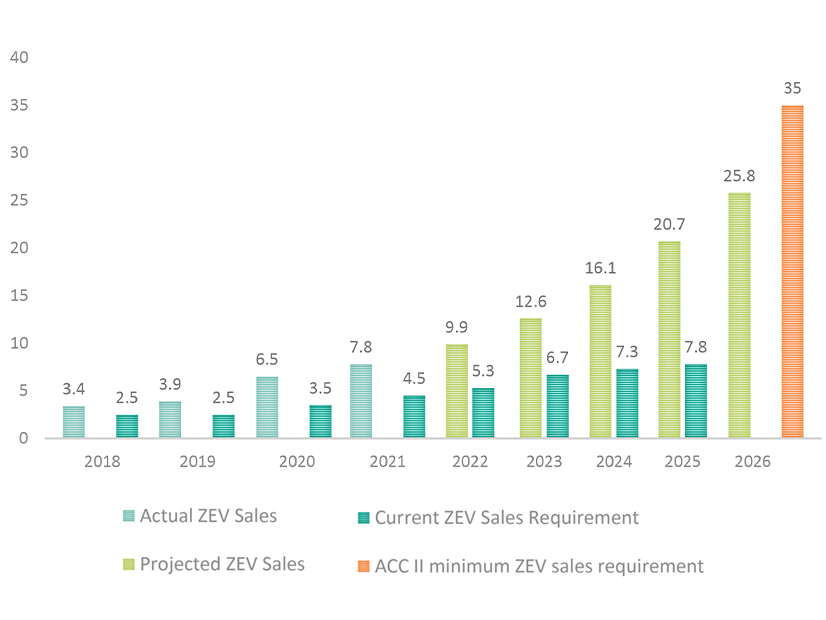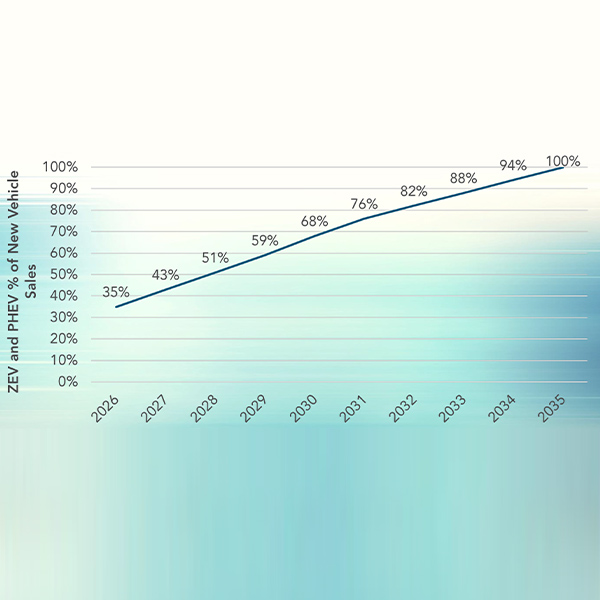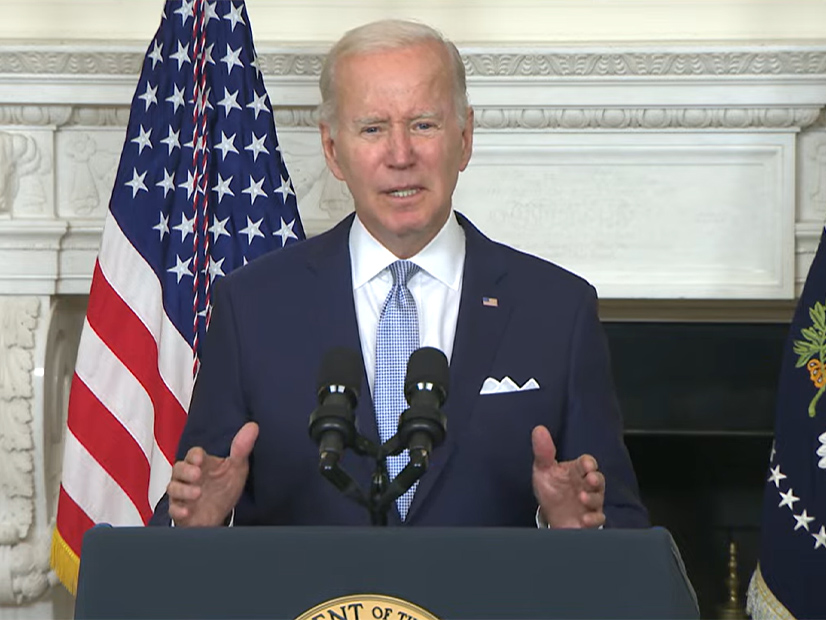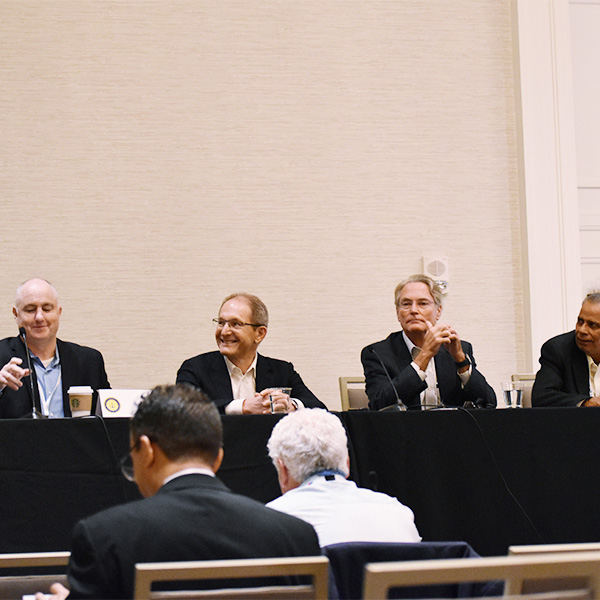Fuel Cell Vehicles
The California Air Resources Board approved its largest budget yet for incentive programs for clean cars, trucks and buses.
A Nevada advisory panel is recommending the state adopt a mileage-based road usage charge for ZEVs to replace lost gas tax revenues.
Leaders from the three West Coast states and the Canadian province of British Columbia signed an agreement pledging to cooperate on climate change measures.
Growth in the number of hydrogen fueling stations accelerated in California, but the state is likely a year behind on its 100-station goal.
Oregon’s adoption of California’s ACC II rules could cost automakers up to $3 billion but yield $5.8 billion in economic benefits for the Beaver State by 2040.
With a provision for PHEVs, California’s Advanced Clean Cars II regulations won’t completely eliminate internal combustion engines in new vehicles.
Oregon regulators are racing to adopt by year-end a California rule requiring all new cars sold in the state to be zero-emission or plug-in hybrid by 2035.
CARB adopted regulations that will require all new cars sold in the state to be zero-emission or plug-in hybrid by 2035, a trailblazing move, the agency says.
The Inflation Reduction Act carries the same number as the Build Back Better Act, but its $670 billion falls far short of the original $2.2 trillion.
Hydrogen will be as important as electrification in achieving a cost-effective clean energy mix, NARUC panelists said.
Want more? Advanced Search
